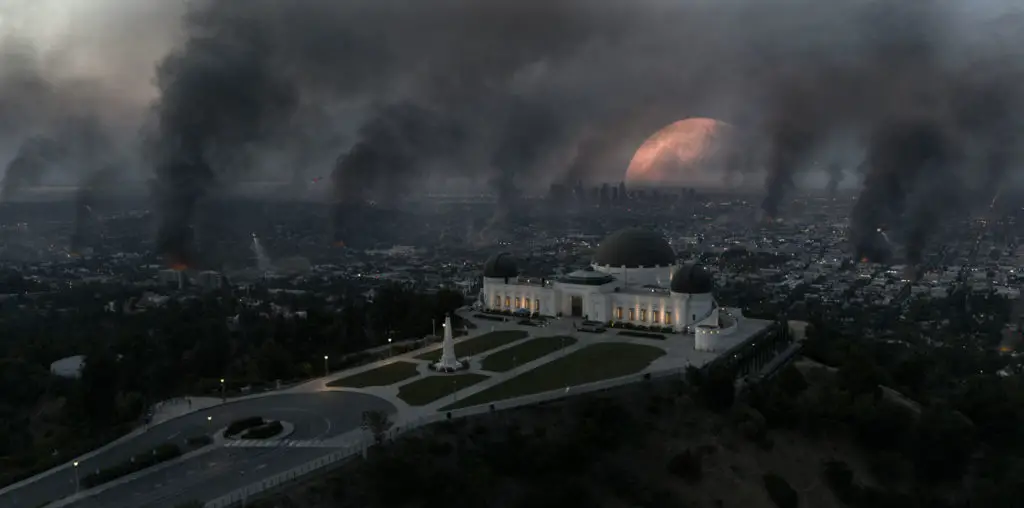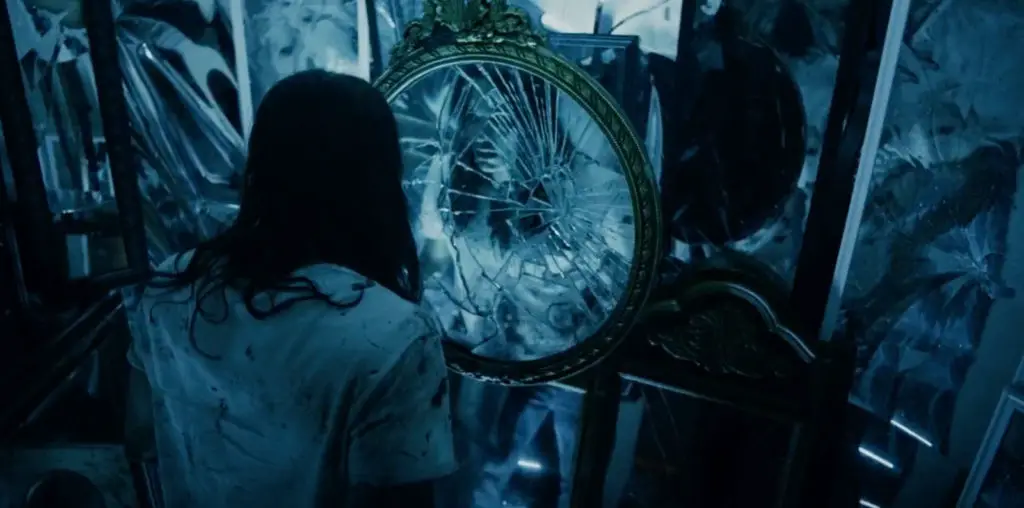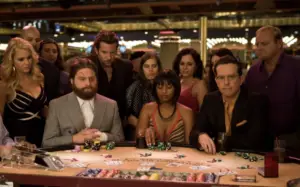
From Ocean’s Eleven to The Hangover, from Casino Royale to the neon lights of Las Vegas in countless music videos, casinos and gambling have been a dominant fixture in pop culture for decades. The thrill of high-stakes games, the lure of fast money, and the risk of losing it all are fascinating narratives that captivate audiences. But what is it about gambling, specifically casino culture, that has us so obsessed?
Gambling isn’t just about the cards or the dice — it’s about the tension, the drama, and the emotional rollercoaster. It taps into something primal and universal: the human desire for risk and reward, for fortune and failure. And in a society constantly looking for new thrills, no wonder the casino world is a constant source of inspiration. From films to video games, gambling culture has become more than just a backdrop — it’s a key player in the narratives we consume. Gambling has always captured the imagination of pop culture, from iconic movies to hit songs. For those intrigued by the casino world, start your online journey here with exciting gaming opportunities.
The Glamour and Grit of Casinos in Film
When we think of casinos in pop culture, it’s hard not to think of iconic films that have shaped our understanding of gambling. Casino (1995), directed by Martin Scorsese, is a stark exploration of the rise and fall of the Las Vegas casino empire, blending the world of high rollers with organized crime. The glitz and glam of the casino world are juxtaposed with the underbelly of corruption, greed, and violence. It’s a compelling world where anything can happen — and that’s why we’re drawn to it.
In many ways, the success of these films lies in their ability to reflect the real world. In Ocean’s Eleven (2001), a slick, high-stakes heist set in one of Vegas’ most luxurious casinos becomes a metaphor for the power of teamwork, intelligence, and outwitting the odds. These films aren’t just about the games themselves — they’re about people taking risks, playing against the system, and perhaps, winning big. And let’s face it, who wouldn’t want to be that smart, charming con artist, right?
Gambling in cinema isn’t only about the grandeur and luxury of Vegas either. Movies like 21 (2008), about a group of MIT students who count cards at blackjack tables, take a more intellectual approach to the casino world. These films tap into a different kind of audience: the ones who see casinos as a puzzle to be solved, an intellectual game rather than pure chance. It’s this multifaceted portrayal of gambling — from the high-life to the high-stakes — that keeps us intrigued.
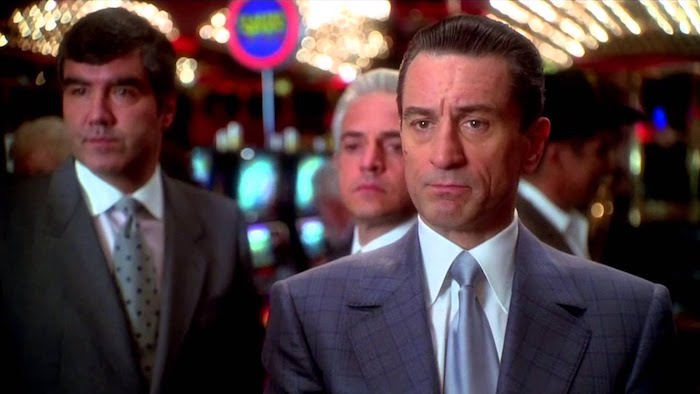
Gambling and Its Role in TV Shows and Music
TV shows, too, have capitalized on the allure of casinos and gambling. Breaking Bad (2008-2013), though not centered on gambling, features a crucial episode set in a casino where high-stakes poker becomes a metaphor for Walter White’s escalating gamble with his own moral decay. The very setting, a chaotic and risky environment, mirrors the character’s journey into darker, more dangerous territories.
In the world of music, the casino and gambling aesthetic has long been a symbol of excess, risk, and indulgence. Songs like Katy Perry’s Waking Up in Vegas, Bruno Mars’ The Lazy Song with its references to poker chips, or Viva Las Vegas by Elvis Presley have made the casino a recurring metaphor for freedom, hedonism, and rebellion. Music videos often feature the neon lights of casino floors as a symbol of escape, as if the roulette wheel might offer the key to a better, more exciting life. It’s no coincidence that these songs are not just catchy — they transport us into a world where anything is possible and the stakes are always high.
Video Games: The New Frontier for Gambling Culture
As video games continue to evolve, the integration of gambling mechanics has become increasingly prevalent. The Grand Theft Auto series, known for its satirical take on American culture, has embraced the world of casinos — players can gamble away their in-game money in a variety of casino games, adding another layer of risk and excitement. The in-game casinos become part of the larger criminal empire, where every win (and loss) is a step toward power.
Similarly, games like Red Dead Redemption 2 use poker and blackjack as central components of their narratives, giving players the chance to immerse themselves in a world where the thrill of the gamble is intertwined with the quest for wealth and survival. The stakes might be virtual, but the tension is very real — just like in the films and shows that have been telling us these stories for decades.
Why Do We Keep Coming Back to Gambling Stories?
Gambling, in all its forms, serves as a metaphor for life itself: we take risks, we bet on ourselves, and sometimes, we lose it all. It taps into universal themes of fortune, fate, and the ever-present tension between winning and losing. The appeal of casinos in pop culture isn’t just about the games — it’s about what they represent: risk, reward, and the possibility of transformation.
It’s not just the high-profile blockbusters or the glitzy Las Vegas shows that are fascinated by the gambling world. Indie filmmakers have increasingly begun to explore this space as well, often with a darker, more critical lens. Films like Mississippi Grind (2015) and The Gambler (2014) dive into the psychological aspect of addiction, desperation, and self-deception in the context of gambling. These films portray the underbelly of casino culture — not just as a fun, luxurious escape, but as a world that can destroy the lives of those who get too caught up in it.
Indie filmmakers, in particular, have the power to break down the glossy surface of the casino world, showing us the people behind the chips, the failures, and the broken dreams. Much like the films that came before them, these filmmakers use gambling to reflect society’s obsession with risk and reward — but they do so with a more critical eye, questioning the social impact of this obsession and the allure of fortune.
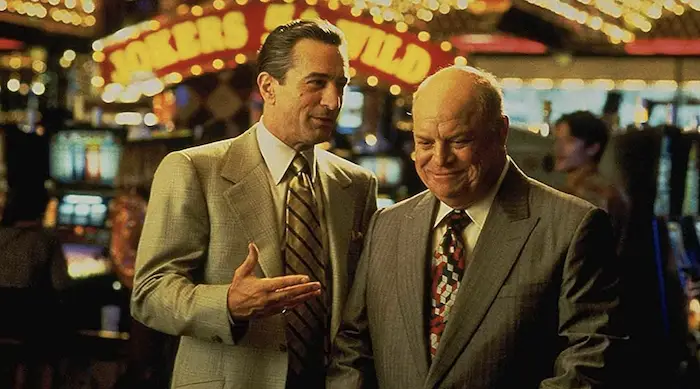
Conclusion: Gambling as a Cultural Mirror
The casino craze in pop culture is far from a passing trend. Whether it’s a glitzy blockbuster, a gritty indie drama, a music video celebrating excess, or a game that lets you roll the dice of fate, gambling continues to be a symbol of human desire, ambition, and the thrill of chance. It’s a reflection of how we see the world — a place where success often feels like a gamble, and where we’re constantly searching for that one lucky break.
For indie filmmakers, the world of casinos and gambling provides a rich terrain to explore. It’s a space where they can reflect societal trends, disrupt traditional narratives, and create stories that tap into something universal. Because, in the end, we’re all gamblers in one way or another, playing our hands, betting on the future, and hoping we land on the winning side.
If you’re interested in finding out more about the modern-day evolution of casinos and how they’re adapting to online platforms, check out the latest offers and updates from Cosmobet, where the digital casino world is always full of surprises.

